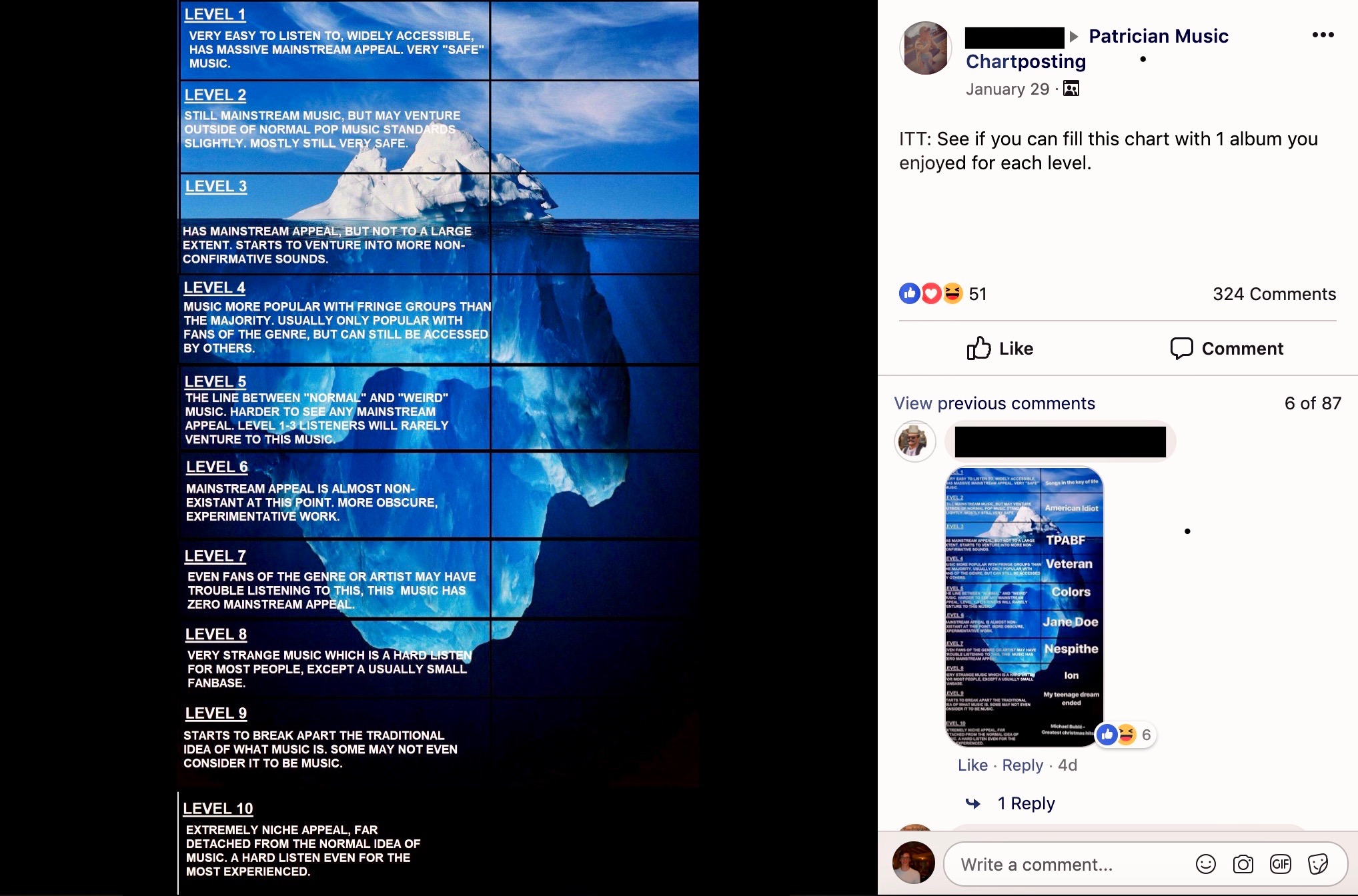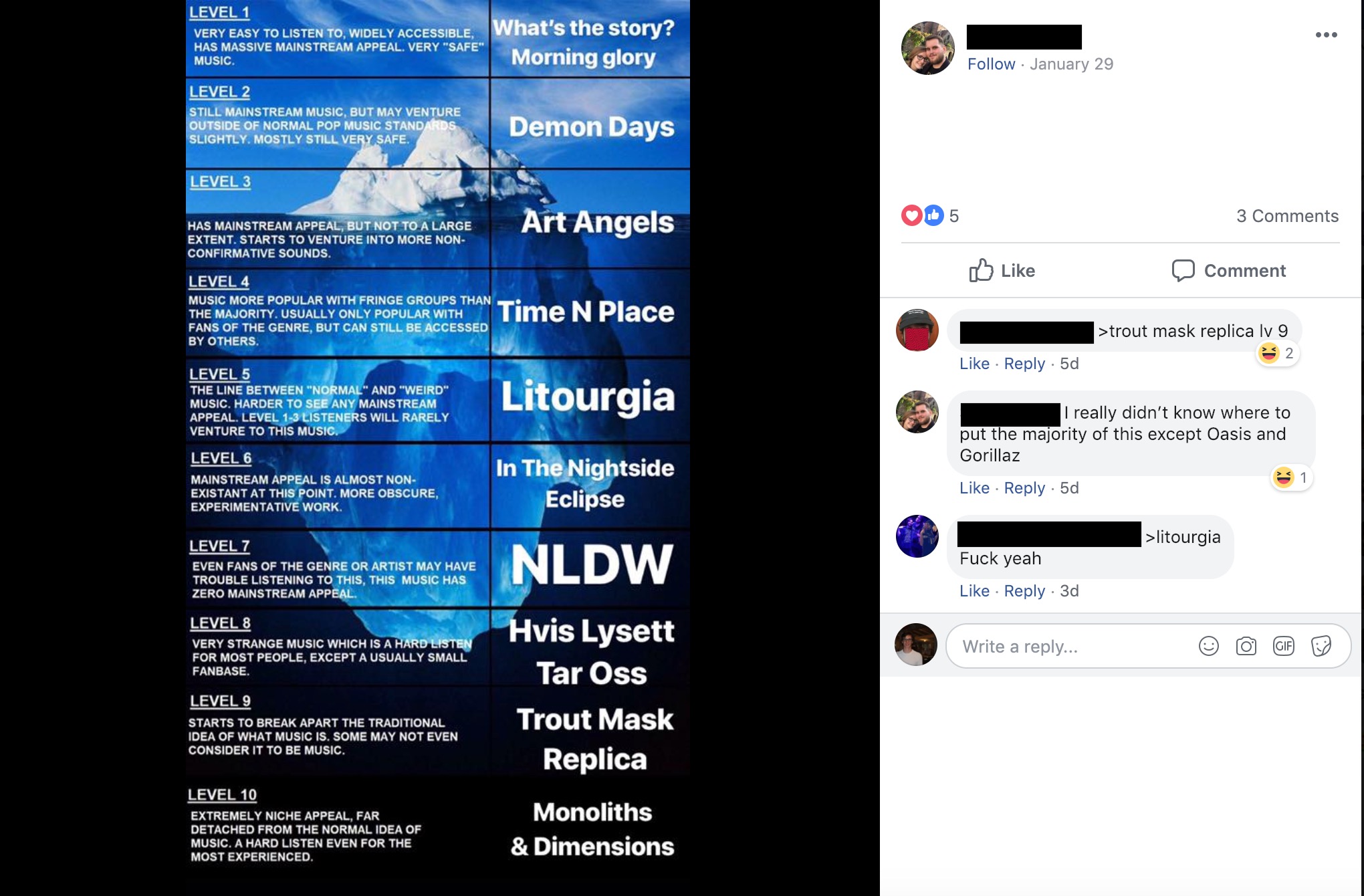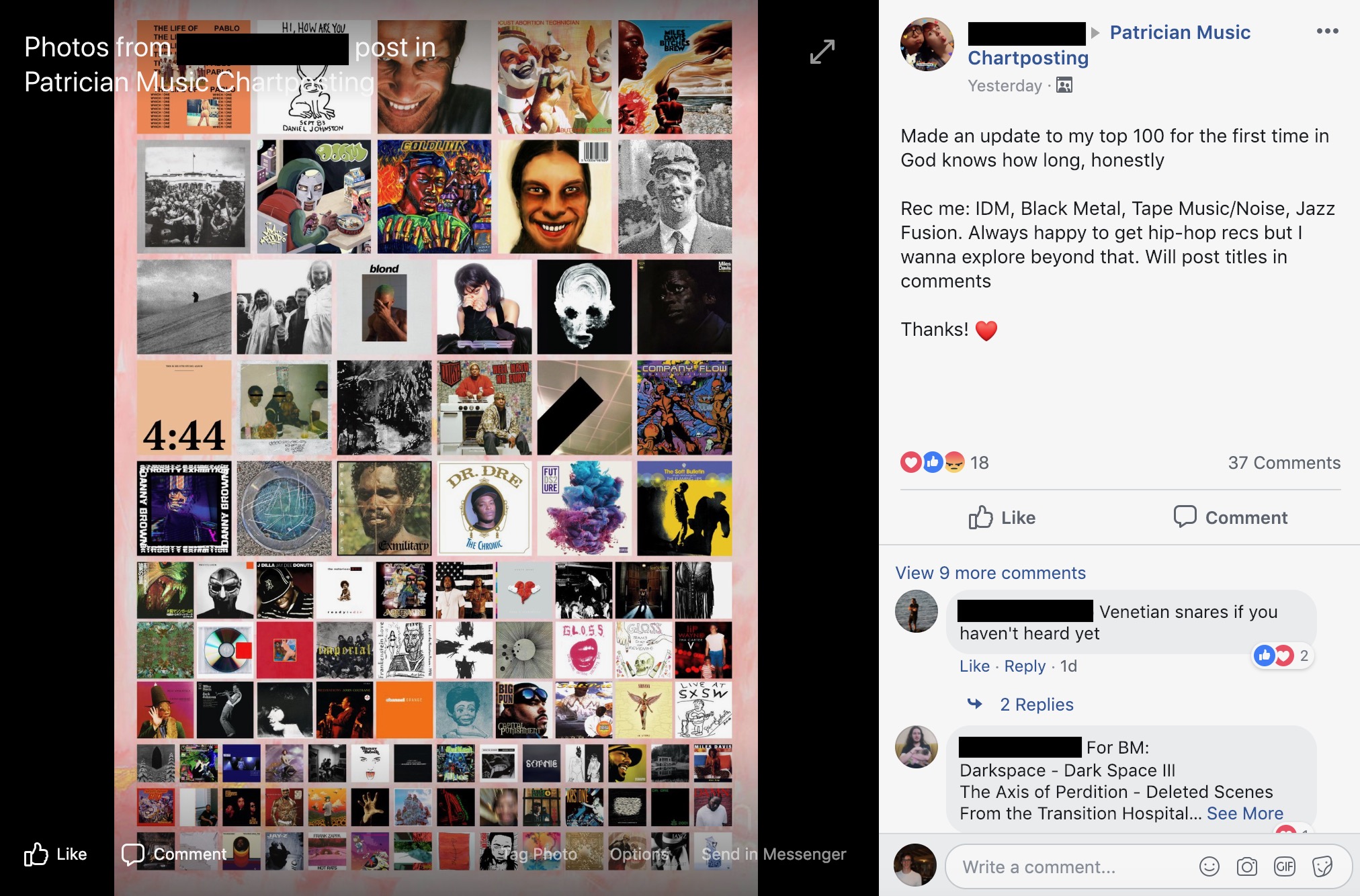Patrician Music Chartposting: Toxic Pretension in the Internet Age
by Owen Murray
For better or for worse, pretentiousness, or pretension has been a part of music appreciation for decades. At times, it has been openly celebrated. LCD Soundsystem frontman James Murphy developed a persona nearly entirely around his pretentiousness—starting from the band’s first single in 2005 “Losing My Edge.” On this song Murphy—a former DJ—laments about “the internet seekers who know every good member of every good group” before launching into an off-the-cuff sounding list of all the “cool” bands he knows. In 2010 Murphy went so far as to tell The Guardian “I actually want to write a treatise in defense of pretension.” The way he saw it, pretension was just a force making him explore new things. “The first time I read Gravity’s Rainbow, I did so because I thought it would make me seem cool….now I’ve read it six times.” Characterized this way, pretension seems like nothing more than a competition to see who can find the coolest books and the coolest music, but Murphy’s view totally overlooks it’s toxic, and completely unproductive side.
The John Cusack movie High Fidelity (2000) makes both sides of pretension abundantly clear in one two-minute scene. The main character Rob, who owns a record store lists his “top five favorite side one, track one’s” to his employees at the record store he owns. He lists some classic albums and throws in some Massive Attack. The response: “a sly declaration of new classic status slipped into a list with old safe ones….very pussy!” Crude, but harmless. There’s nothing wrong with teasing a friend in an effort to get them to listen to cooler music. But when a nerdy-looking customer asks about a Captain Beefheart record, they tell him they’re not ready to sell it. Well aware the record is ready to be sold, a regular customer calls them out. “You guys are totally elitist. You feel like the unappreciated scholars so you shit on the people who know less than you!”
Patrician Music Chartposting or “PMC” is a Facebook group with well over 50,000 members that has grown to embody the internet seekers James Murphy feared in 2005 and the toxic elitism displayed in the record store High Fidelity. While the group is predated by equally toxic communities like 4chan’s mu/ page, PMC has become the quintessential music group for music snobs or “patricians” on the world’s most popular website. The page’s creators had a fantastic goal: recommend music to each other and your post charts— many of which resemble Rob’s “top side one, track one’s.” Getting recommendations from 50,000 people every day has the potential to be an excellent resource for music discovery. Unfortunately, the elitism and inevitable trolling that comes with so many people interacting virtually with strangers makes it difficult to tell if the recommendations are even worth it.
This is a typical post in PMC, and it’s a pretty quality one. It’s somewhat original and genuinely thought-provoking. It provides a lot of opportunity for discussion and recommendations for music of any genre. Of course, the post is ridiculously pretentious. It’s hard to tell if it’s designed to create discussion or just as an outlet for people to show off the obscure, obtuse albums they listen to. Regardless, it did create a number of engaging responses.
And of course, there are those who manage to devalue the post with completely unhelpful responses.
Thank you, very cool.
This is where PMC becomes like the elitist record store owners from High Fidelity, deriding others whose interests aren’t “cool” enough. In PMC, Death Grips’ The Money Store is practically a pop album. And if you think otherwise you’re a pleb or a normie.
This brings comment up another issue with PMC: literally just liking things Anthony Fantano likes. And Kanye. If you don’t like Kanye, you’re going to have a bad time. More often than not, group members are there to validate their current beliefs, rather than learn about new music. Discourse in the group is closer to a competition to see who has the best taste than a discussion of opinions. As a result, the groups’ opinions can be surprisingly homogeneous, which really defeats the point of joining such a massive group in the first place. While it seems like the main cause of this is that members take excessive direction from Pitchfork and Anthony Fantano—though most would vehemently deny this—the group’s heavily male-dominated membership is likely a factor as well. Kanye, Death Grips, Bjork, Aphex Twin, Talking Heads, Swans, are among the few artists who longtime members of the group know are held in the highest esteem. Any criticism of these artists is brushed off as “bait.” Oftentimes it is bait—some bored kid trying to get a rise out of thousands of music snobs at once. But legitimate criticism is lumped in with the bait as if not one person in a group of 50,000 could ever come up with a legitimate criticism of the all-powerful Kanye West.
Despite the massive downsides of the group, the potential the group has makes it difficult to leave. The idea of sharing music with people all across the country, and often across the world is so exciting that it’s tough to turn your back on it entirely. The simple post below is the kind of thing that best displays the groups potential. Showing people what you like, and asking for recommendations.
Patrician Music Chartposting is a lamentable community, full of internet seekers who were bad enough when James Murphy called them out in 2005. The group takes the toxic pretension depicted in High Fidelity to a new, meme-powered level but unfortunately, if you’re a music enthusiast on the internet in 2019, there’s really no better community to turn to.





